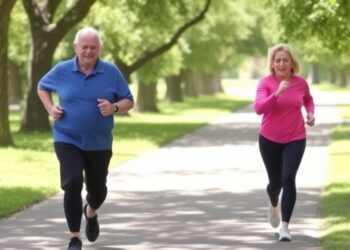PHILADELPHIA—The Pew Charitable Trusts today announced the 22 researchers who have been selected to join the Pew Scholars Program in the Biomedical Sciences. These early-career scientists will receive four years of funding to explore some of the most pressing questions in human health and medicine.
PHILADELPHIA—The Pew Charitable Trusts today announced the 22 researchers who have been selected to join the Pew Scholars Program in the Biomedical Sciences. These early-career scientists will receive four years of funding to explore some of the most pressing questions in human health and medicine.
“Pew believes that supporting promising early-career researchers is key to scientific innovation, and for nearly 40 years our scholars have helped change the world—creating lifesaving therapies and responding to emerging health crises around the globe,” said Donna Frisby-Greenwood, Pew’s senior vice president for Philadelphia and scientific advancement. “This class of Pew scholars is no different. We are proud to support these scientists and look forward to watching where their research takes them.”
The 2024 class of scholars, all early-career junior faculty, join a community of more than 1,000 scientists who have received awards from Pew since 1985. Current scholars have opportunities to meet annually with fellow Pew-funded scientists to build connections and exchange ideas across a wide variety of disciplines.
“Technological advancements in recent years have transformed science and opened up new, unexplored avenues for discovery,” said Craig C. Mello, Ph.D., a 1995 Pew scholar, 2006 Nobel laureate in physiology or medicine, and chair of the national advisory committee for the scholars program. “This class of scholars represents some of the best and brightest leading the charge, and I’m thrilled to welcome them into Pew’s scientific community.”
Scholars were chosen from 198 applicants nominated by leading academic institutions and researchers across the United States. This year’s class includes scientists who are examining the neural mechanisms that guide learning, investigating the ins and outs of the human genome, and exploring how metabolic changes fuel antibiotic resistance.
Five members of the 2024 class, who were selected for their commitment to investigating health challenges relating to the brain as it ages, will receive awards with support from the Kathryn W. Davis Peace by Pieces Fund.
The 2024 Pew scholars in the biomedical sciences are:
Nicolas Altemose, D.Phil., Ph.D.
Stanford University
Dr. Altemose will investigate how specific proteins help to maintain the function of centromeres, chromosomal structures that play a key role in the process of cell division.
Jesse R. Dixon, M.D., Ph.D.
The Salk Institute for Biological Studies
Dr. Dixon will study how the breakage of chromosomes can lead to changes in gene regulation and genome architecture.
Longhua Guo, Ph.D.
University of Michigan
Dr. Guo will explore the molecular and cellular processes that reverse tissue aging.
Arbel Harpak, Ph.D.
University of Texas at Austin
Dr. Harpak will develop and test new models exploring the drivers of sex differences within both human and animal models.
Rogelio Hernández-López, Ph.D.
Stanford University
Dr. Hernández-López will pioneer novel approaches for designing synthetic protein receptors for engineering cellular communication.
Chi-Min Ho, Ph.D.
Columbia University Irving Medical Center
Dr. Ho aims to determine the molecular architecture and function of the machinery that allows malarial parasites to ingest and break down host cell hemoglobin—the oxygen-carrying molecules in red blood cells needed for survival.
Cholsoon Jang, Ph.D.
University of California, Irvine
Dr. Jang will explore how organs communicate with each other to maintain metabolic health as a uniform entity—and what happens when these regulatory processes go awry.
Xin Jin, Ph.D.
Scripps Research
Dr. Jin will map how genetic variants associated with neuropsychiatric disorders alter the development, circuit organization, and anatomy of neurons across the entire brain.
Ann Kennedy, Ph.D.
Northwestern University
Dr. Kennedy will examine the neural mechanisms that shape an animal’s response to different, competing needs.
Ci Ji Lim, Ph.D.
The University of Wisconsin-Madison
Dr. Lim will investigate the structure of human telomeres—the protective caps made of DNA and protein that safeguard the ends of chromosomes.
Allison Lopatkin, Ph.D.
University of Rochester
Dr. Lopatkin will examine how changes in bacterial metabolism contribute to the development of antibiotic resistance.
Evanna Mills, Ph.D.
Dana-Farber Cancer Institute, Harvard Medical School
Dr. Mills will explore processes controlling the function of macrophages, crucial immune cells that can cause harmful inflammation.
Binyam Mogessie, Ph.D.
Yale University
Dr. Mogessie will unravel the molecular mechanisms that guide proper chromosome segregation during the formation of mature oocytes, cells found in the ovary that eventually become eggs.
Louise Moncla, Ph.D.
University of Pennsylvania
Dr. Moncla will reconstruct how avian influenza viruses accumulate mutations that allow them to jump from birds to humans.
Vijay Mohan K. Namboodiri, Ph.D.
University of California, San Francisco
Dr. Namboodiri will explore the neural mechanisms that guide learning.
James Nuñez, Ph.D.
University of California, Berkeley
Dr. Nuñez will probe the mechanisms by which cells prevent transposable genetic elements from jumping around the genome.
Sara Prescott, Ph.D.
Massachusetts Institute of Technology
Dr. Prescott will study the role that neurons play in remodeling lung tissue after environmental distress.
Silvi Rouskin, Ph.D.
Harvard Medical School
Dr. Rouskin will uncover the intricate structures formed by RNA inside cells.
Devin Schweppe, Ph.D.
University of Washington
Dr. Schweppe will catalog how drugs interact with all of the proteins within cells.
Clare Smith, Ph.D.
Duke University
Dr. Smith will examine how microbial and host factors contribute to the severity of tuberculosis.
Claudia Vásquez, Ph.D.
University of Washington
Dr. Vásquez will investigate the cellular and molecular mechanisms that shape the construction of a functional organ.
Meg Younger, Ph.D.
Boston University
Dr. Younger will explore whether mosquitoes are more attracted to babies than to their parents.
Founded in 1948, The Pew Charitable Trusts uses data to make a difference. Pew addresses the challenges of a changing world by illuminating issues, creating common ground, and advancing ambitious projects that lead to tangible progress.




